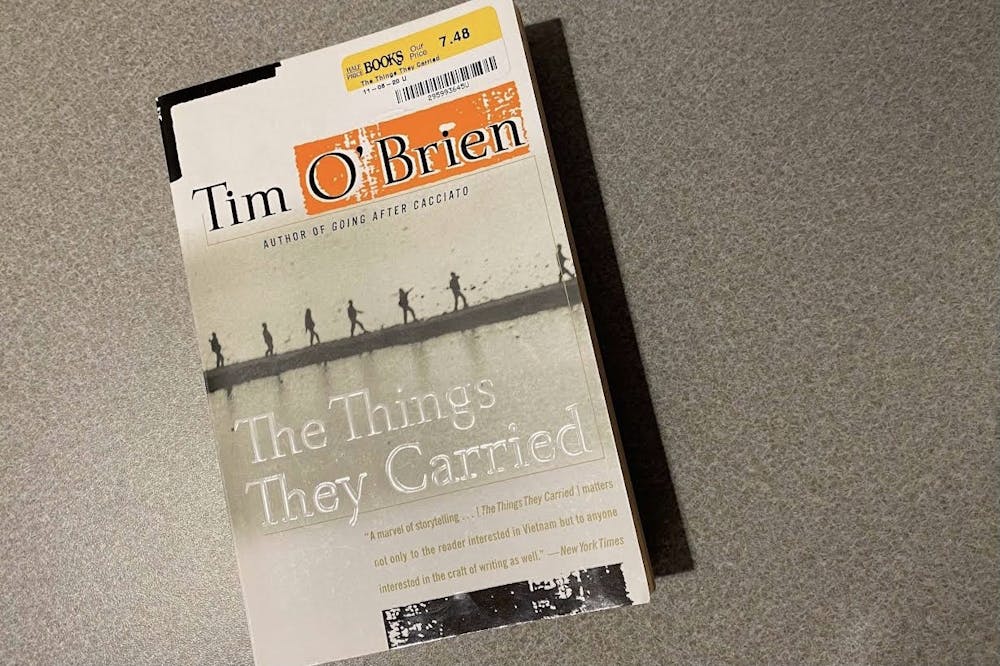This is the second column in a weeklong series celebrating Banned Books Week, which celebrates the freedom to read. Each column will review a different frequently challenged book.
“The Things They Carried” by Tim O'Brien
Tim O’Brien lists more than 50 items soldiers carried during the Vietnam War in his 1990 novel. Each is important, but one sticks in my head long after I close the book every time I read it. They carried gravity, he writes in that first chapter.
In “The Things They Carried,” O’Brien tells a partially fictionalized story of his time spent as a soldier in the 23rd Infantry Division in Vietnam.
His prose is honest, even in the parts of the novel which run parallel to the truth. Reminiscent of Kurt Vonnegut and Ernest Hemingway in their writings about war, his sentence style is journalistic, following a simple structure. He doesn’t romanticize the topic any more than the language, writing about war truthfully without disguising the realities of conflict in flowery prose.
O’Brien analyzes the idea of courage more neatly than any author I have ever read. He questions the relationship between bravery, morality and intent in a chapter that begins: “This is one story I’ve never told before. Not to anyone.”
The chapter enclosed toward the beginning of “The Things They Carried” is a confession of a boy drafted into a war he, in his own words, hated. He writes of the “moral split” he experienced during the summer he was drafted, torn between the fear of war and the fear of running to Canada to avoid it.
He went north for six days, met a man named Elroy and then went home to go to Vietnam. The final lines of the chapter reverberate in my head as if I was 21-year-old O’Brien grappling instead.
“I survived, but it’s not a happy ending,” he writes. “I was a coward. I went to the war.”
Each paragraph of the book packs a similar punch, making readers feel the words in their gut.
No. 34 on the American Library Association’s list of the Top 100 Most Banned and Challenged Books 2010-2019, O’Brien’s work doesn’t always garner fans for its blunt depictions. Banned for violent and crude content, it remains one of the most thought-provoking novels on my shelf.
O’Brien foretells his writing strategy through a suggestion from character Mitchell Sanders, a radio telephone operator in the novel, who says, “Get the hell out of the way and let (the story) tell itself.” O’Brien falls into line accordingly.
He doesn’t dilute his story with commentary, and in some chapters, he doesn’t even bother stumbling over punctuation marks in quotes, rather omitting them entirely in an effort to get to the point.
Cathartic and sometimes brutal, O’Brien’s writing embodies his subject matter.
Soldiers in his story carry pocket knives, cigarettes, canteens of water, rations, steel helmets, photographs, fatigues, bandages and more. But according to O’Brien, they carried more than that. They carried gravity.




